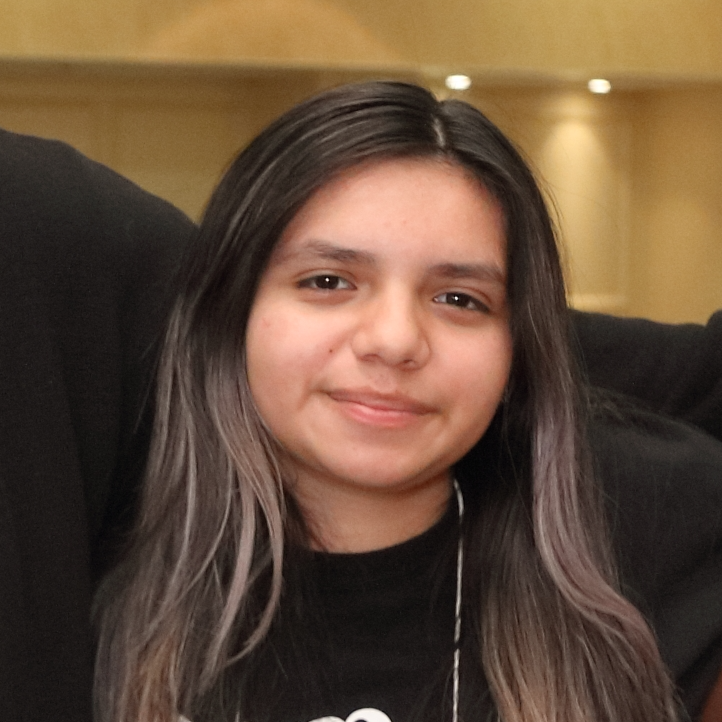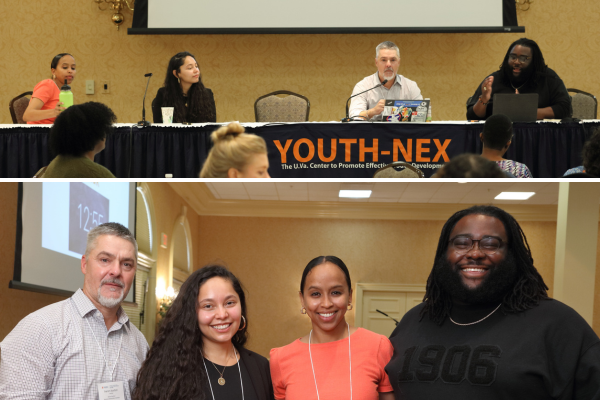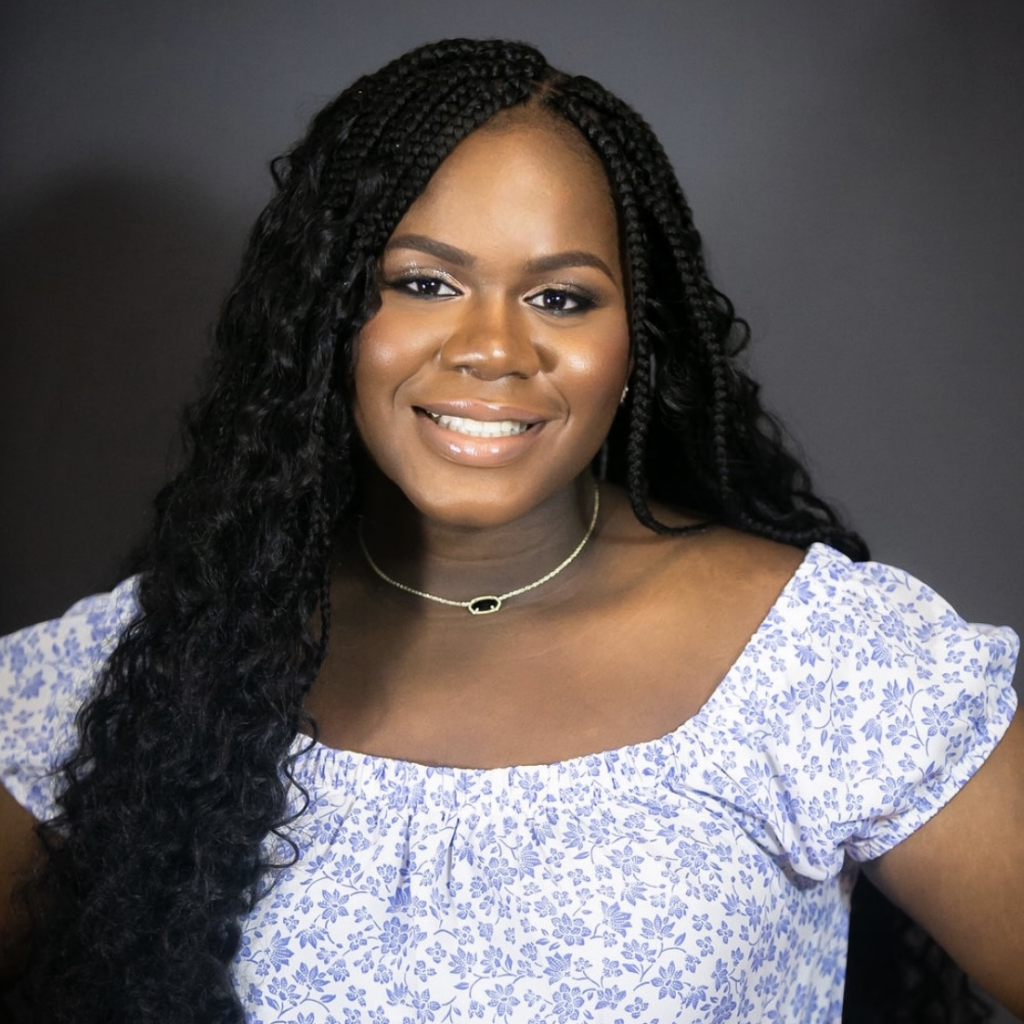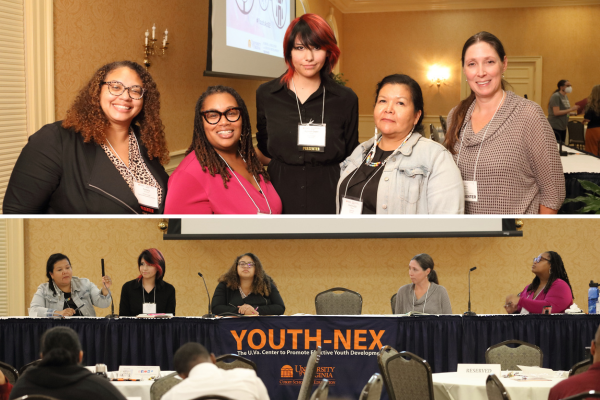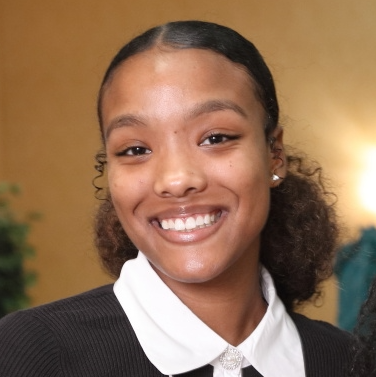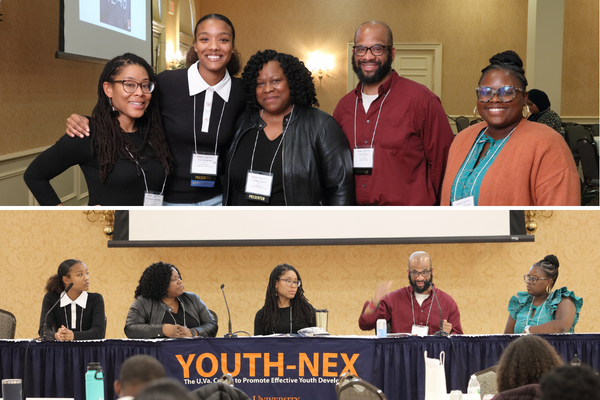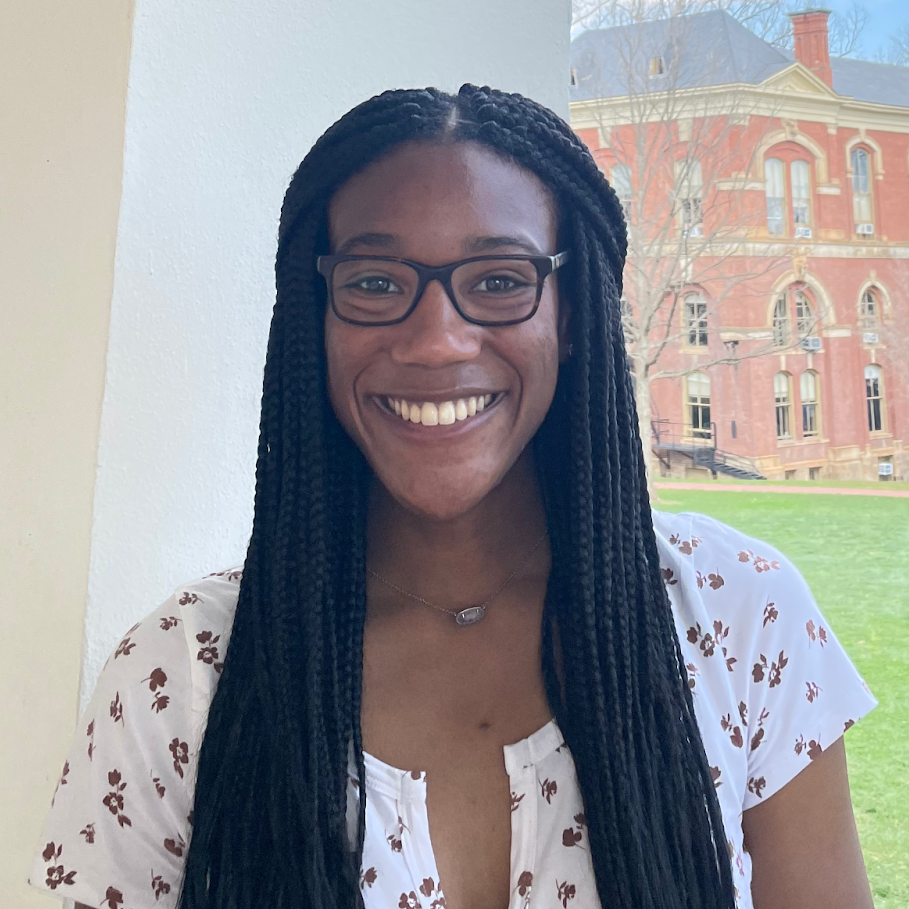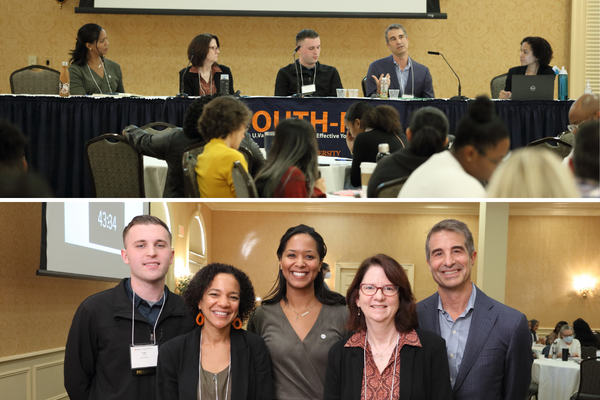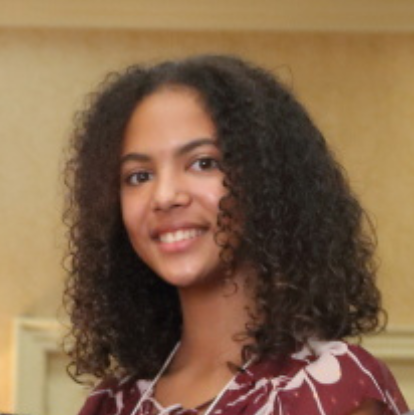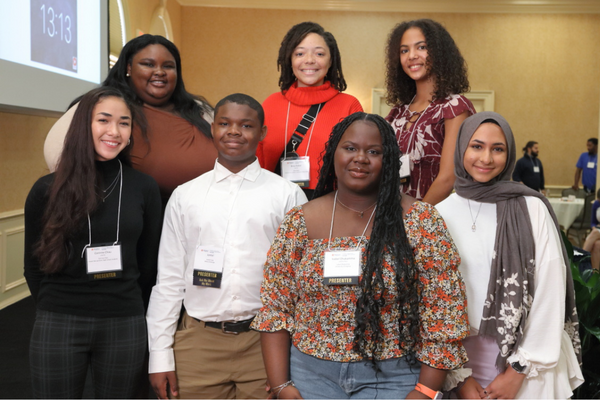By: Wintre Foxworth Johnson
Highlights:
- In fall 2022, Youth-Nex hosted their 8th conference entitled Pass the Mic: Amplifying Youth Voice & Agency, co-chaired by Drs. Wintre Foxworth Johnson and Nancy Deutsch.
- In this Pass the Mic blog series, we highlighted each of the sessions from the conference and included youth voices to summarize and reflect on what was discussed.
- For this conclusion blog, co-chair Dr. Johnson highlights the key advice and thoughts from the youth who participated in the series and summarized the conference panel discussions.
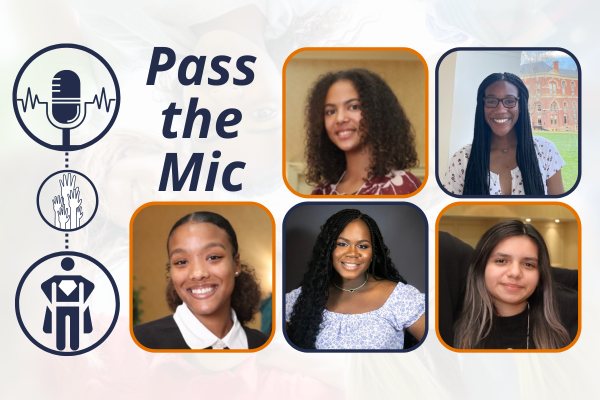
Throughout the Pass the Mic blog series and Youth-Nex’s 8th conference, we heard from young people who are actively working to amplify their peers’ voices within and across the systems that shape and inform their lives. Youth are the present as much as they are the future, and we need their ideas! I have been inspired reading the posts in this series and wanted to feature their voices once more as we take a comprehensive look across their blogs.
Youth Voices in Shaping Systems
Zaharra, a 13-year-old conference panelist, reflected on what was shared about social and justice systems. She wrote about adults that “break out a box” (i.e., the criminal legal system) that should not be there for youth. She says, “By taking a risk [Andy Block] changed the system and helped to save lives; this is what educators and other people should be doing when building relationships… [with young people].”
Maya, a 2nd year at UVA and conference volunteer, summarized the panel talking about youth empowerment in schools. She declares,
“Students’ voices should and need to be not only heard, but also given genuine space during the school decision making process.”
She summarized panelists’ suggestions about how teachers and administrators can support and empower youth voices in schools. Maya also took over the Youth-Nex Instagram handle (see profile highlights) to share more videos about her blog!
Kiara, a senior in high school and conference panelist, reflected on the panel about health and well-being. She states, “Giving youth the opportunity to speak to someone about the things that they see every day could be the first step to healing childhood trauma (that they would have to tackle one day in their adulthood).” She felt inspired hearing from other youth about how they feel they can advocate for not only themselves, but their families as well.
Isabel, a 1st year at UVA and conference panelist, summarized the session about politics, organizing, and civic engagement. She asserts,
“a young Black person cannot speak up in the same ways that a young White person can speak up, so it is important to teach Black and Brown youth to be an advocate in their own way and not force them to emulate the actions of young White activists.”
Isabel highlighted important takeaways about empowering youth voices, engagement, activism, and education. She also took over the Youth-Nex Instagram handle (see profile highlights) to share more videos about her blog!
Liz, a 16-year-old conference panelist, shares more about youth programs that elevates voice and agency. She writes, “Young people should be uplifted by those around them, especially our mentors because they are considered the ‘knowers.’ Mentors and other adults should affirm youth and help us to feel like we are actually heard.” She also shares more about her personal experiences in a youth program that works to amplify her voice.
Pass the Mic
The goal of the convening was for everyone to approach the issues affecting youth with new eyes because they are complex and require all our experiences, expertise, and ideas. We want adults to not only see, but also engage, youth as true partners in working for change!
So as we conclude this Pass the Mic blog series, please take with you the thoughts and advice from the young people who were essential to the conference as you continue to “pass the mic”!
Did you miss one of our six sessions from the Pass the Mic: Amplifying Youth Voice & Agency conference? Go back and watch these panels with youth voices, and read the summaries, primarily written by the youth participants, on the following topics:
- A Dialogue Among Young People on Youth Voice & Agency in the 21st Century
- Social & Justice Systems
- Youth Voice & Agency in Schools
- Health & Well-Being
- Politics, Organizing & Civic Engagement
- Programs that Elevate Youth Voice & Agency
If you have any comments or questions about this post, please email Youth-Nex@virginia.edu. Please visit the Youth-Nex Homepage for up to date information about the work happening at the center.
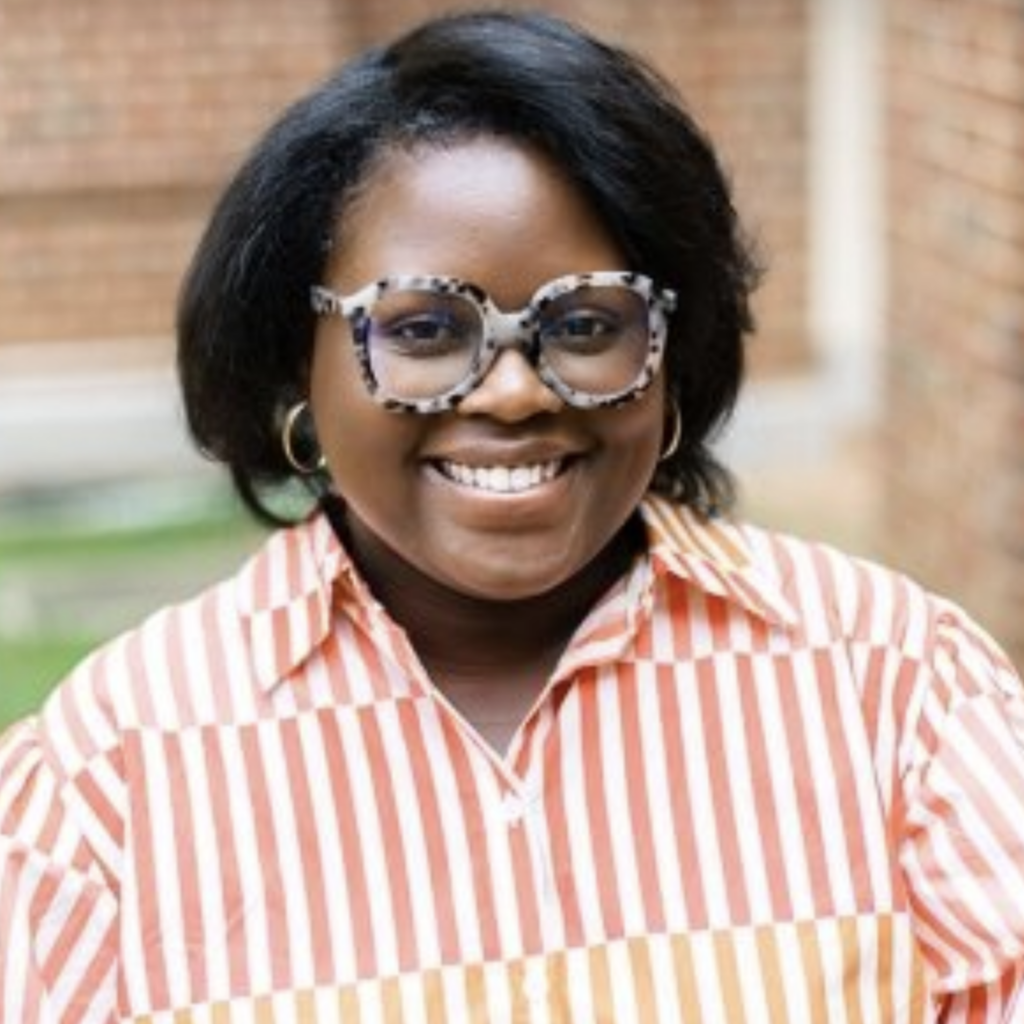
Author Bio: Dr. Wintre Foxworth Johnson’s scholarship lies at the nexus of sociocultural literacy studies, critical race scholarship, and critical pedagogies for and with young children. Her research has two primary aims: to examine the relationship between literacy teaching and learning in race-conscious and social justice-oriented elementary educational contexts; to investigate the sociopolitical development of children from historically marginalized communities, with a particular focus on Black children’s educational experiences, racial awareness, and experiential knowledge.
